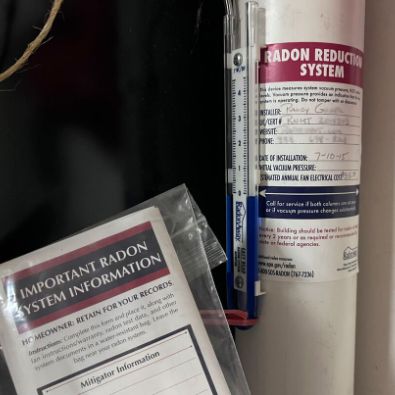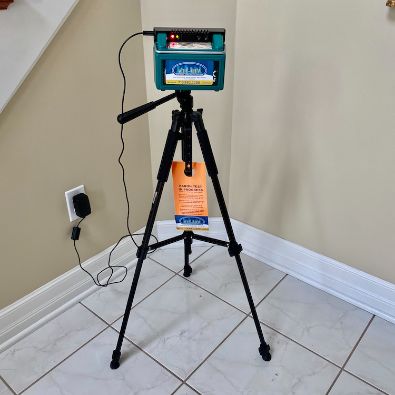Radon Testing & Inspection
Call Now! Schedule Your Radon Testing & Inspection 319-231-4021
The Importance of Radon Testing and Inspection in Elkhart, Iowa
Radon is a naturally occurring, odorless, and colorless gas that can be found in the soil and rocks beneath our homes. It is a known carcinogen and can cause serious health problems if it is not properly tested and inspected. That is why it is so important to have your home tested for radon in Elkhart, Iowa.At All Iowa Radon, we understand the importance of radon testing and inspection. We are dedicated to providing our customers with the highest quality radon testing and inspection services. Our team of experienced professionals will come to your home and conduct a thorough inspection to determine the levels of radon in your home. We use the latest technology and equipment to ensure accurate results.Once the inspection is complete, we will provide you with a detailed report of our findings. This report will include the levels of radon in your home, as well as any potential health risks associated with the levels. We will also provide you with recommendations on how to reduce the levels of radon in your home.At All Iowa Radon, we take the safety of our customers seriously. We understand the importance of radon testing and inspection in Elkhart, Iowa, and we are committed to providing our customers with the best possible service. If you have any questions or concerns about radon testing and inspection, please do not hesitate to contact us. We are here to help.


Elkhart, Iowa is a small town located in the northwest corner of the state. It is part of the Des Moines-West Des Moines Metropolitan Statistical Area and has a population of just over 1,000 people. The town was founded in 1854 and was named after the Elkhart River, which runs through the area. Elkhart is known for its small-town charm and is a popular destination for tourists and outdoor enthusiasts alike.
Elkhart is home to the Elkhart Historical Museum, which houses artifacts from the town's past. The museum also features a replica of the original Elkhart schoolhouse, which was built in 1856. The town is also home to the Elkhart Public Library, which was established in 1887 and is the oldest library in the state of Iowa.
Elkhart is also home to the Elkhart Country Club, which was founded in 1895 and is one of the oldest golf courses in the state. The course is a par-72 and features a variety of challenging holes. The town is also home to the Elkhart Lake, which is a popular spot for fishing, swimming, and boating.
Elkhart is also home to the Elkhart County Fair, which is held every year in August. The fair features a variety of activities, including carnival rides, live music, and a variety of food vendors. The fair also features a variety of livestock shows, including cattle, sheep, and swine.
Elkhart is also home to the Elkhart County Historical Society, which was founded in 1891 and is dedicated to preserving the history of the area. The society hosts a variety of events throughout the year, including lectures, tours, and special events. The society also maintains a museum and library, which are open to the public.
Local Radon Testing & Inspection Experts Call NOW! 319-231-4021



Elkhart, Iowa has a long history with radon. Radon is a naturally occurring radioactive gas that is found in the soil and rocks of the area. It is odorless, colorless, and tasteless, and can be found in both indoor and outdoor air. Radon is the second leading cause of lung cancer in the United States, and is especially dangerous when it accumulates in enclosed spaces.
Radon was first discovered in Elkhart in the late 1800s. At the time, it was thought to be harmless, and was used in medical treatments. However, in the early 1900s, scientists began to recognize the dangers of radon, and it was eventually banned from medical use.
In the 1950s, the US government began to take radon more seriously, and the Environmental Protection Agency (EPA) was created to regulate it. The EPA began to monitor radon levels in Elkhart, and in the 1970s, the city was declared a radon-prone area. The EPA then began to require all new homes in Elkhart to be tested for radon, and if levels were found to be too high, the home would need to be mitigated.
Today, Elkhart is still considered a radon-prone area, and the EPA continues to monitor radon levels in the city. The EPA recommends that all homes in Elkhart be tested for radon, and if levels are found to be too high, the home should be mitigated. Radon is a serious health hazard, and Elkhart residents should take steps to protect themselves and their families from its dangers.
Contact Us For A Free Quote!
Our team of experts is ready to provide you with personalized guidance and deliver exceptional results.
